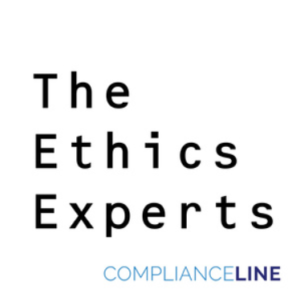Welcome to a blog post series on Exiger’s fight to secure supply chains, sponsored by Exiger LLC. In this series, we will explore the ongoing efforts of Exiger to lead the discussion and enhancement of Supply Chain Risk Management. In Episode 1, I visit with Erika Peters, a Senior Vice President (SVP) with close to two decades of experience working across the financial, corporate, and government industry, and focus on the firm’s supply chain and third-party risk management practices, and Tim Stone, Senior Director, Supply Chain Risk Management, for Exiger Federal Solutions. We discuss supply chain issues in the healthcare industry, including hospitals, life sciences, pharmaceuticals, medical devices, and medical services.
We began with critical supply chain risk management challenges in the healthcare industry. Peters said the “way I think about the healthcare sector and how it differentiates from the other sectors is that the ultimate risk is trying to mitigate fatalities. This means thinking about the third parties that healthcare companies must work with and then their supply chain makes it one of the most extremely critical industries to be thinking about. In the current post-pandemic era, it is one of the timeliest topics. Equally important is that if you must switch out a key vendor, the entire process can take between 12-18 months, putting your organization in a bind. This means you need to put a rigorous process in place and then follow that process.”
Stone noted key lessons learned on healthcare industry supply chain issues from the pandemic. He stated that the federal government created a Joint Acquisition Task Force in the Department of Defense (DoD) during the pandemic. This was an interagency push to source products across various pandemic-related areas like therapies, vaccines, ingredients, testing, materials and equipment, personal equipment, and even items such as no-touch thermometers. The task force illuminated dozens of product areas across those different sectors, then used market intelligence tools to identify companies in each industry. Further, they used modeling to estimate production capacity and entered information into the Exiger software product DDIQ to risk-rank based upon these and other inputs.
This led to the finding of supply chain fragility. This is because many components in the healthcare supply chain come from state-owned enterprises, and many of these are from China. Even when the team began to focus on migrating to India, it turned out that many underlying components came from China. Another problem discovered was the concentration of raw goods and manufacturers. Stone noted, “we saw otherwise obscure examples of concentration risks arise during COVID that you had never thought about before. In Malaysia, for example, we realized it was a top producer of nitro gloves that owns about 65% of the market. This led to COVID-driven disruptions, which impacted our ability to get nitro gloves. This was the way the world turned and focused on supply chains and where goods are ultimately sourced.” Just-in-time supply chains saw similar if not more disruptions as well.
We then turned to how the healthcare industry supply chain can improve its approach to managing risk. Here Peters noted there were two key areas. The first is programmatic, and the second involves a technological solution. Companies need to create a genuinely risk-based program, for instance, looking at entities that will cause an operating room to shut down or prohibit a company from getting materials required for medicines. These critical entities need to have the most in-depth due diligence; taking that strategic risk appetite and having it trickled down to the tactical level is an important way of making sure that the people at the bottom who are doing the actual work that they are hitting the right risk lens that the company wants to take.
The other piece is to have technology in place to facilitate this and that “we need to improve on that technology.” She noted, “we get to this higher level of more of a predictive posture, which is the golden standard where we need to be. We need to have these teams looking at their risk and bringing it into one view of this entity, especially these critical ones.” It looks at a wide variety of risks, from legal/regulatory to geopolitical to operational. It is doing so quickly and efficiently so the front-line supply chain professionals can make decisions for their organizations’ long-term care and health.
Stone concluded that down the road, supply chain professionals in the healthcare sector “can improve the bottom line, through greater fluidity, greater understanding of their supply chains, greater ability to on the fly to gauge the credibility of vendors, and have that due diligence information at their fingertips through technology.” It will also help avoid a lot of fraud, waste, and abuse and create a more well-oiled machine from a supply chain perspective.
Join us tomorrow when we spotlight the manufacturing and consumer markets.
Resources
Erika Peters Profile
Tim Stone Profile
Exiger Website
Exiger’s Supply Chain Explorer







